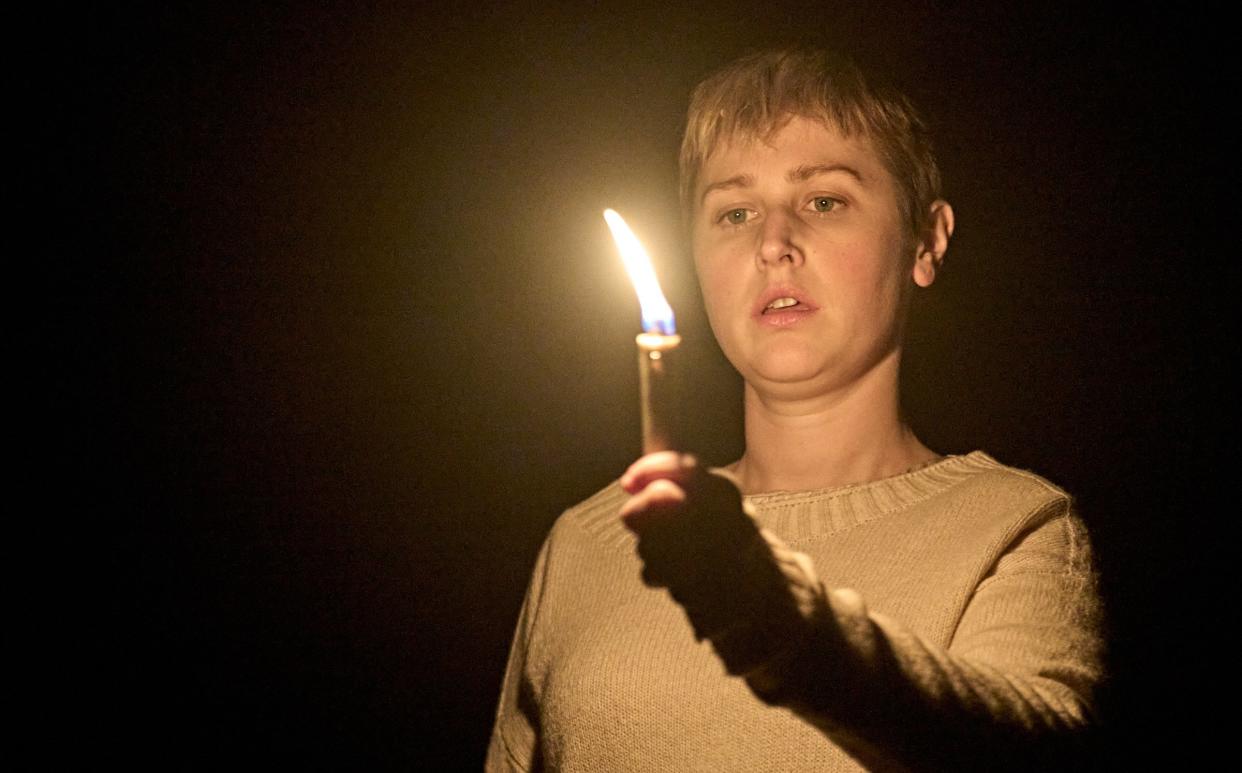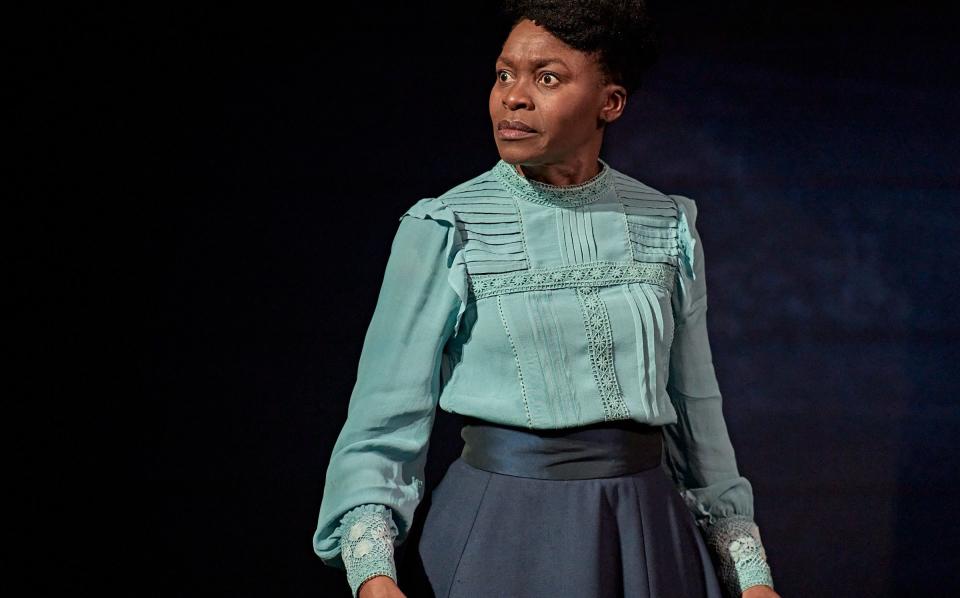The Glow, review: confusing time-travelling drama tinkers with history

After his 2014 cult breakthrough, Pomona, spiriting up a sinister netherworld nestling in the heart of Manchester, and then X, outlandishly set on a research base on Pluto, Alistair McDowall reaffirms his burgeoning reputation for pushing the theatrical envelope, and into the oddest shapes, with The Glow.
The North Yorkshire-bred maverick, 34, tests possibilities, certainly plausibility, and perhaps audience patience, with a twisty tale of a woman who exists as a living archetype, enduring through ages and jumping across eras like a human flea – a being with a radiant touch, no less.
It’s hard to encapsulate his time-bendy head-scratcher, but think of the obsession in The Da Vinci Code with Mary Magdalene and a Doctor Who box-set watched on fast-forward and you’re halfway there; in terms of its theatrical pedigree, you can spot comparisons with JB Priestley and Thornton Wilder.
The gloomiest beginning finds Ria Zmitrowicz’s “Woman” in a Victorian asylum cell. Exploitative rescue is at hand courtesy of a well-to-do spiritualist medium (a lordly, inquisitive Rakie Ayola), who gives the rasping, discombobulated creature a home, and tries to harness her psychic powers. These prove inordinately potent, initially prompting her shudders at distantly remembered acts of slaughter before the end of act one deposits us in 1348.
Thereafter – when she has escaped the clutches of a rugged knight (Tadhg Murphy) – we are zipped about from the early Stone Age to the 1970s and 1990s, different locations lightly suggested within an imposing rust-metal set embedded with a futuristic portal. Vicky Featherstone’s direction stokes a thrillerish ambience with its abrupt lighting shifts and swift transitions.

The language pushes into risky portentousness in trying to honour its transcendent protagonist (“She has lived longer than the mountains”) yet there’s an under-cutting self-awareness.
Zmitrowicz inclines to make the character almost studiedly ordinary in her flat speech patterns, flavouring her time-traveller with the seen-it-all-before air of a bored teenager. But it’s a skittish voyage of self-discovery too – she collides with a myth enthusiast (the engaging Fisayo Akinade) who identifies her as a recurrent but acutely singular type, and the solicitude of a woman (Ayola again) who gives her shelter makes her face her solitude.
For me, it fails to hit the spot the way X so ingeniously did. And there’s a nagging worry now that the Royal Court has lost the plot when it comes to finding big plays with something urgent to say about modern life. Yet experimentalism is part of its artistic rationale, a form that can describe existence at its most ineffable.
The out-there climax, abounding with vaporous cosmic rhetoric, defiantly beats the drum for the imagination at its least fettered, suggesting that in the beginning was this woman, but also that within us all lies the call, and glow, of the weird.
The Glow is at the Royal Court Downstairs until March 5th. Tickets: 0207 565 5000; royalcourttheatre.com

